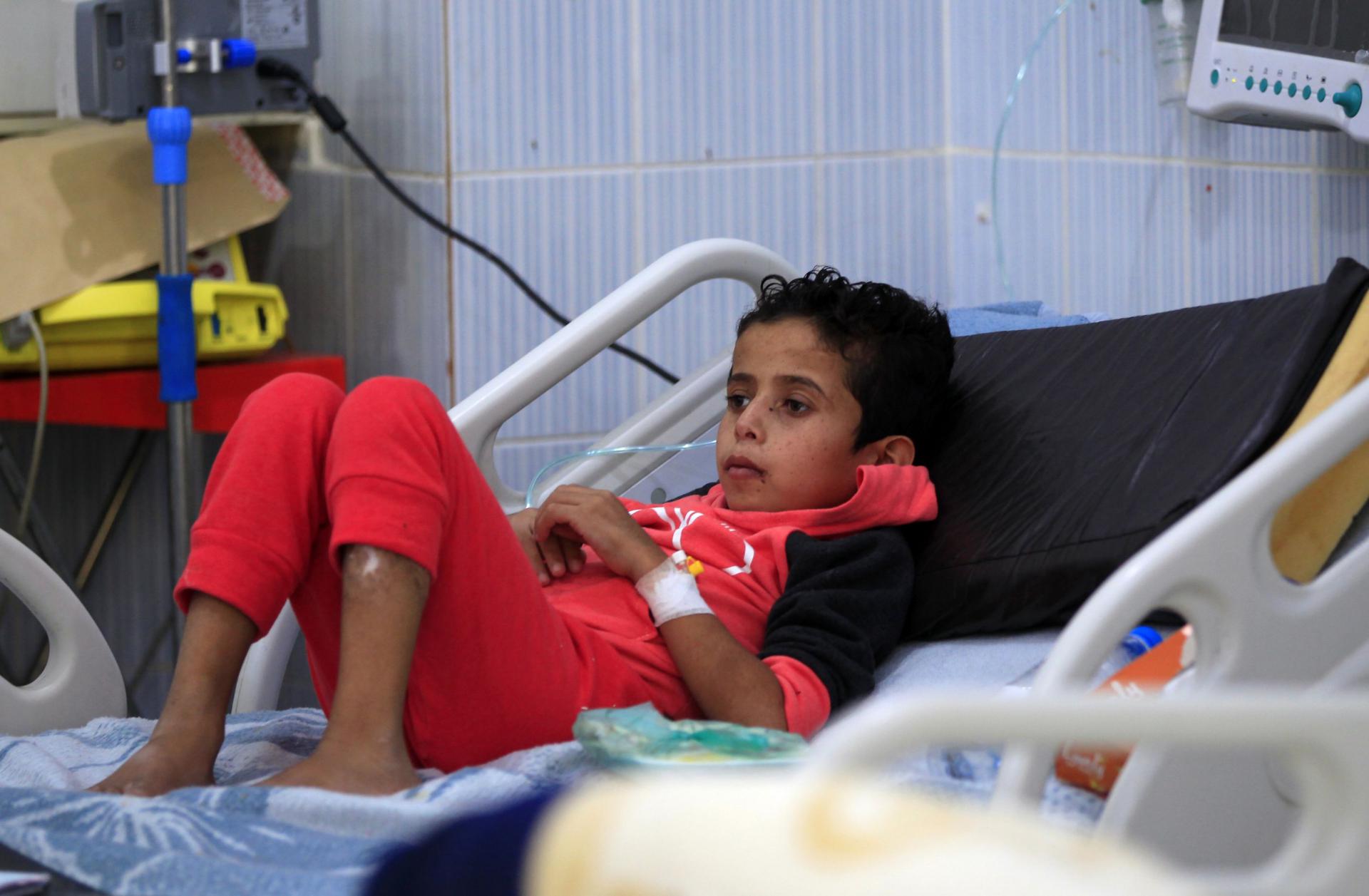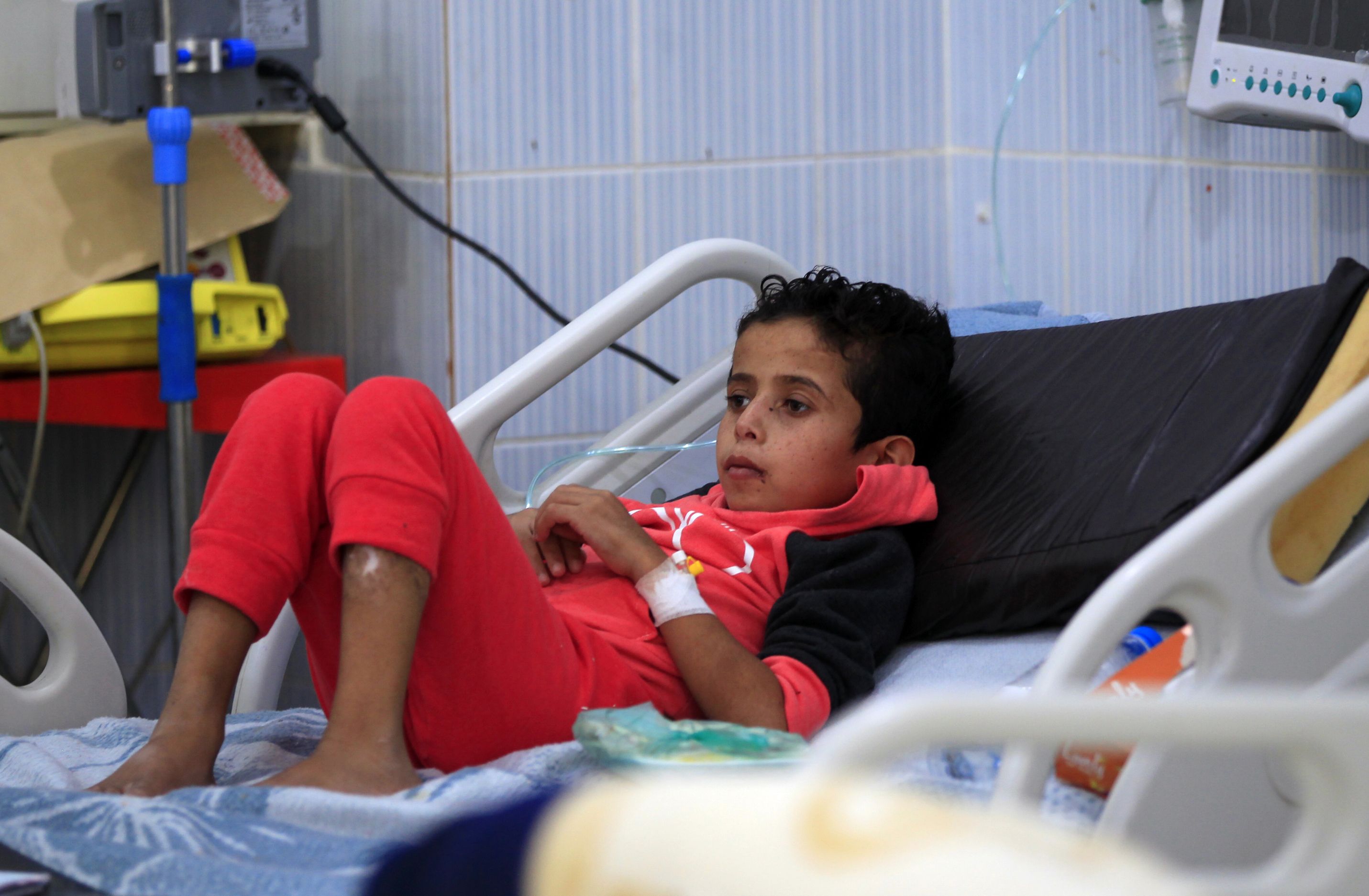UN says Yemeni children dying over blocked aid deliveries
ANKARA - Yemeni children are dying from starvation and disease as trucks with life-saving supplies are blocked in port, leaving medical staff and desperate mothers imploring aid workers to do more, a senior UN official said.
Geert Cappelaere, Middle East director for the UN Children's Fund (UNICEF), described "heart-breaking" scenes of emaciated children in hospitals in the main port city of Hodeidah and the capital Sanaa, both held by Houthi insurgents.
"We have evidence that today in Yemen every 10 minutes a child under the age of 5 is dying from preventable diseases and severe acute malnutrition," he told Reuters from Hodeidah.
The United Nations says about 14 million people, or half Yemen's population, could soon be on the brink of famine in a man-made disaster.
Already 1.8 million Yemeni children are malnourished, more than 400,000 of them suffering from severe acute malnutrition, a life-threatening condition that leaves them skeletal with muscle wasting, Cappelaere said.
"But there is more. Many children are dying from vaccine-preventable diseases. Today not more than 40 percent of the children throughout Yemen are being vaccinated," he said.
Measles, cholera and diphtheria can be deadly for children, especially those under five, and are exacerbated by malnutrition.
"Because of this brutal war, because of obstacles, obstructions being made, it is unfortunately not possible do much more," Cappelaere said.
"We may not yet be at the level of a famine but we should not wait until we have declared a famine to step up and to pressure the parties to the conflict to stop this senseless war," he said.
UN envoy Martin Griffiths aims to convene peace talks this month to seek a ceasefire in the three-and-half year war, which pits the Yemeni government, backed by a Saudi-led coalition, and the Iran-allied Houthi insurgents.
As Cappelaere spoke, coaltion forces were massing for an assault on Hodeidah.
Heartbreaking
Seven trucks carrying life-saving medical equipment and medicines had been blocked at Hodeidah port for two weeks awaiting clearance after being off-loaded, Cappelaere said.
"It was heart-breaking that an hour before I was sitting at al-Thwara hospital, and I have all the doctors, all the medical staff pleading with me to get more medical supplies, to get more medicines," he said.
A UNICEF spokeswoman said the trucks had been cleared by Houthi authorities on Friday and supplies would be distributed.
Several extremely malnourished children were in the hospital ward, Cappelaere said.
"All the mothers were telling me that they are simply missing that small amount of money to transport their children from their communities to the hospital," he said.
Hodeidah is a lifeline for food and other goods for much of the country.
But, said Cappelaere, "There was hardly any activity in the port. Only one ship was berthed, that was it.
"Today it looks more like a graveyard than anything else."
On a precipice
UN Secretary-General Antonio Guterres on Friday appealed for an end to the war and laid out steps the parties in the conflict must take to move forward, warning that continued fighting would result in the country's worst famine in a decade.
"Yemen today stands on a precipice. On the humanitarian side, the situation is desperate. We must do all we can to prevent the already dire conditions from deteriorating," Guterres told reporters at the United Nations.
He said recent political developments had created signs of hope for a settlement, and he urged the warring parties to halt the violence, especially around cities and critical infrastructure.
Guterres' remarks come three days after US Secretary of State Mike Pompeo called for a cessation of hostilities and said UN-led negotiations to end the war should begin in November.
Several other countries have also joined the call for an end to the conflict.
"We must do all we can to maximize the chances for success," Guterres said.
He called for commercial and humanitarian imports of food, fuel and other essentials to be allowed without restrictions, and urged the sides to allow roads to remain open so "life-saving goods can reach communities across the country."
He called on Yemeni parties to engage in good faith negotiations, without preconditions, with UN special envoy Martin Griffiths to reach a negotiated political settlement.
"The international community has a real opportunity to halt the senseless cycle of violence and to prevent an imminent catastrophe," Guterres said. "The time to act is now."
Despite the appeals, fighting continued on Friday, with the Saudi-led coalition saying it had attacked Sanaa International Airport and an adjoining air base being used by Houthi insurgents.
Guterres said he was appealing to both sides to halt the violence and to preserve important infrastructure.
"The appeal is to all of them (to) embark in the cessation of hostilities sooner rather than later, immediately in our opinion, in order to allow for the political process to start," he said. "Obviously we are not yet there. That is why we are appealing for the kind of military action that is taking place from both sides to end."



